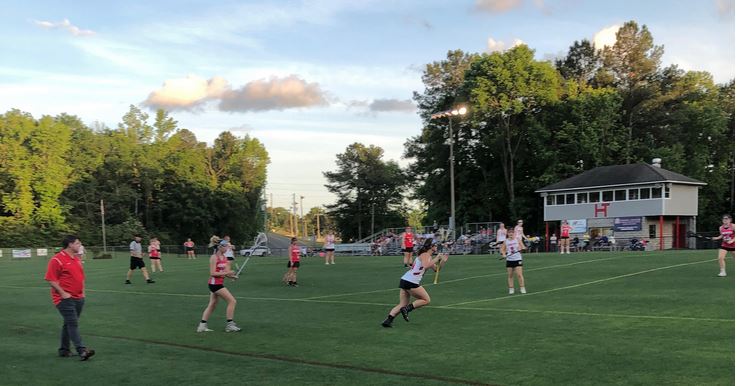Countywide
District attorney candidate Bill Veitch on “changing the culture” of the office
The Republican candidate explains why he won’t be a “stay-in-the-office” district attorney.
To read our interview with Mike Anderton, Bill Veitch’s opponent in the Republican primary for district attorney, click here.

Bill Veitch photo courtesy of Veitch’s campaign website.
Bill Veitch plans to “change the culture” in the district attorney’s office. “It’s going to be a friendlier district attorney’s office to everybody that crosses our path,” he says, “except bad people. They’re not going to like us very much.”
Veitch, one of two Republican candidates for Jefferson County district attorney, says he’s disappointed with the relationship between the current D.A.’s office and law enforcement officers, describing it as needlessly adversarial. As a former Birmingham police officer, Veitch says he knows how to improve that relationship.
He’s also got significant experience working in the district attorney’s office. He’d previously served in its Bessemer division from 1999 to 2017. He led that division from the start of 2016, when he stepped into replace retiring D.A. Arthur Green, until the end of that year, when he was defeated in an election by Lynneice Washington, the first African-American woman to be elected D.A. in Alabama history.
He also served on the Hoover school board for 10 years, and served as vice president of the Bessemer Children’s Advocacy Center for 15 years.
After his loss to Washington, Veitch says he had all but retired from law enforcement — but he decided to run for the Republican nomination for D.A. this year because, as he put it, “it was in my blood.”
Jefferson County Journal: Before you announced you were running for District Attorney, you had essentially retired. So what brought you back? What made you want to run for this office?
Bill Veitch: The low answer is, I just wanted to do it. It was in my blood and I wanted to. And the high answer is, I just don’t like the direction Jefferson County is going in, and I know I can make a difference. That sounds like what everybody says, but I really do. I’m really good at it, and I think I’d be a breath of fresh air to the district attorney’s office.
Jefferson County Journal: What don’t you like about the direction the county is going in?
Veitch: What I see is what’s been happening for 30 years. I see the decline of Jefferson County, and a lot of it’s due to crime or the perception of crime. I see a district attorney’s office that doesn’t seem to work well with law enforcement. In fact, if you interviewed any detective from any department, they’d say that going downtown to get a warrant is like being in enemy territory, that they’re not treated well. There’s a feeling that they’re second-class citizens when they go down there.
There’s over 40 district attorneys and some of them do nothing but screen warrants. If you can imagine that, it’s almost like it’s human nature to want to justify your position and make it important. And the way to make that job important is to really make things hard on the police, I would think.
Jefferson County Journal: So you’re saying that as district attorney, you would be an advocate for law enforcement.
Veitch: Well, it’s advocacy for getting something done. I come from a background — I was a police officer, and I do well with the police. I’m not a rubber stamp for the police, but I do understand them. And when they’ve got a problem, I like to address it.
Also, I’m not a stay-in-the-office type district attorney. I’m a get-out-and-go district attorney. I think a lot of people [in the D.A.’s office] spent 20 or 30 years never leaving the courthouse, and they just sit in there. If a case is handed to them, they try it or settle it or whatever, but you have to be able and willing to get out there and interact with people and be on the front end of it. You need to be well-known with the law enforcement people. I’m probably old-fashioned, but that’s not the way I like to do things.
“I’m not a stay-in-the-office type district attorney. I’m a get-out-and-go district attorney.”
I’ll be out there with [law enforcement]. Once they know that you’re not out there to watch over them or catch them or criticize them or boss them around, then I think they welcome you being there. It helps me to get a feel for the [crime] scene and the seriousness of it, and it also helps the victims and the victims’ families to see that the district attorney’s interested in their case.
Jefferson County Journal: The last district attorney to be elected was Charles Todd Henderson — and a major part of his campaign was built around finding ways to administer justice without necessarily relying on incarceration. Is that something you’ve considered?
Veitch: It depends on the crime. You have to be able to have some common sense. You have to be able to look at people and make judgments. Being caught with two Xanax and a Lortab is not the same as sticking a gun in somebody’s face and robbing them. It’s not the same mentality. Both are felonies, but do I want to saddle somebody with a felony for having two Xanax in their pocket? The answer is, no, I don’t.
What I would do is try to find as much about that person as I could. Do they need help? Good people get caught in bad situations. So you have to be able to differentiate between bad people and good people who just get caught up. You have to be able to tell the difference, and that’s what I’m good at. I can separate the good eggs from the bad eggs. You can’t have one-size-fits-all [punishments], and you have to have an attitude that reflects that.
Jefferson County Journal: One of the biggest issues facing Jefferson County — and the country as a whole — is the opioid epidemic. How do you plan to address that crisis as D.A.?
Veitch: You’ve got to educate people. You’ve got to go [into schools], from when [students] are 12 years old and up, and you’ve got to talk to them about it. You can’t lie to people anymore. You can’t go in there and tell them that a drug is a drug is a drug. You have to explain to them what heroin can do to you, and especially what fentanyl can do. I’m not making a moral judgment for them, I’m trying to make a practical judgement for them, to explain to them that the heroin can kill you. You cannot discern its strength by looking at it. What makes a rock group today write a great rock song, and they live happily ever after, tomorrow it can kill you, because its [toxicity] is not dose-specific. That what makes heroin so, so dangerous.
“You have to be able to differentiate between bad people and good people who just get caught up. You have to be able to tell the difference, and that’s what I’m good at.”
But if you go in there trying to tell them that marijuana is as harmful or as dangerous as heroin, then you lose all your credibility, and you might as well just go home, because they know you’re not telling the truth. That goes back to the common sense I’m talking about. Some might say that marijuana’s a gateway drug — well, everything is, isn’t it? Listening to “I Shot the Sheriff” could be a gateway, or a cigarette. But that’s not my issue. I don’t like heroin because it kills you.
And they lump in pain pills with opioids. You know the reason why heroin got on the market so bad? Because law enforcement put in such an effort to cut out pain pills. People that are addicted to pain pills, whether it’s a voluntary addiction or a medical addiction, they couldn’t find any [more pills]. So they’d go to a cheap fix, which is heroin. That’s one of the unintended results of doing that. Nobody wants to talk about that, but that’s a fact.
What would you rather have somebody do? Would you rather have somebody take a Lortab or shoot heroin into their veins? Lortab’s not going to kill you. The devil’s in the details. I’d rather you not do any [drugs], but at least this isn’t going to kill you right off. Heroin will drop you dead tomorrow.
Jefferson County Journal: You’ve worked for over a decade with the Bessemer Children’s Advocacy Center to prevent or intervene in situations of child abuse. Will that be a priority for you as district attorney?
Veitch: That’s something that can’t be negotiated. Child abuse, hurting old people — in other words, helpless people — if you prey on them, you’re not a good person. That’s not an accident. That doesn’t go back to a good person getting in a bad situation. If you’re going to harm a child, there’s something wrong with you. And we’ve seen so many children that have just had their innocence torn away from them, and they’re never right again. They don’t forget it. I can’t abide that. It’s just horrible.
I think the recidivism rate in child molesters and child abusers is almost off the charts. I don’t think you can fix that. I want to fix things, it’s my nature, but I don’t think you can fix that.
Jefferson County Journal: Alabama has a recidivism rate of roughly 35 percent. As district attorney, would you have any strategies for preventing offenders from becoming repeat offenders?
Veitch: My theory on that is this: if you give somebody some hope, if you give somebody a chance to do something, and they’re inclined to do it, they will. Let’s say someone was selling drugs and got busted and went to prison for four or five years. When they get out, you have to make sure there’s an option for them, a job somewhere, something. At least give them a chance. If they have something to lose, they’re less inclined to go down that criminal path. But if you just turn them loose on the street, the guy’s going to need some money, and he’s going to go right back to the same friends he had.
If you can’t change their hearts, then you have to at least give them something financially to lose if they go back down that road.
“Let’s say someone was selling drugs and got busted and went to prison for four or five years. When they get out, you have to make sure there’s an option for them, a job somewhere, something. At least give them a chance.”
We’re going to have to encourage people to give them jobs. There are some resources out there. There are programs that give employers tax credits for hiring offenders and training them. And I’m not talking just menial jobs, but training to be a plumber or welder or repair person, somebody that can actually make a good living.
And I’ve talked with Dr. Perry Ward, the president of Lawson State Community College, about giving a judge the option to, as part of an offender’s probation, compel them to attend some vocational classes at Lawson State. If you get them into that environment for a little while, they may actually take to it and figure, “This is better than breaking in places or stealing.” And they associate themselves around a different type of people.
People might say, “Bill, that’s not your job as district attorney. Your job’s to prosecute!” Well, it’s more than that. It’s a powerful, powerful position, and you can use it to attract other powerful people to help. And if this isn’t the district attorney’s role, then whose role is it?
The Republican primary for district attorney will take place on June 5, 2018. Read Jefferson County Journal’s interview with Veitch’s opponent in the primary, Mike Anderton, here.









